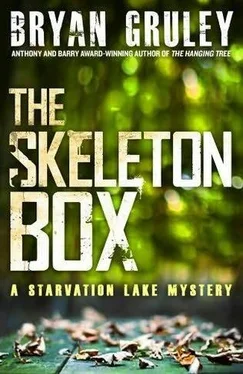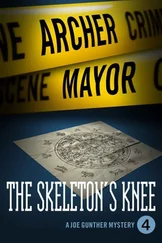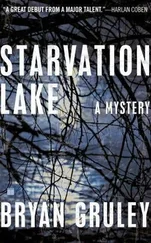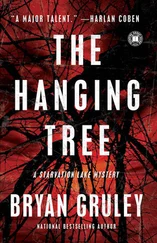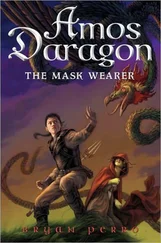Bryan Gruley - The Skeleton Box
Здесь есть возможность читать онлайн «Bryan Gruley - The Skeleton Box» весь текст электронной книги совершенно бесплатно (целиком полную версию без сокращений). В некоторых случаях можно слушать аудио, скачать через торрент в формате fb2 и присутствует краткое содержание. Жанр: Криминальный детектив, на английском языке. Описание произведения, (предисловие) а так же отзывы посетителей доступны на портале библиотеки ЛибКат.
- Название:The Skeleton Box
- Автор:
- Жанр:
- Год:неизвестен
- ISBN:нет данных
- Рейтинг книги:5 / 5. Голосов: 1
-
Избранное:Добавить в избранное
- Отзывы:
-
Ваша оценка:
- 100
- 1
- 2
- 3
- 4
- 5
The Skeleton Box: краткое содержание, описание и аннотация
Предлагаем к чтению аннотацию, описание, краткое содержание или предисловие (зависит от того, что написал сам автор книги «The Skeleton Box»). Если вы не нашли необходимую информацию о книге — напишите в комментариях, мы постараемся отыскать её.
The Skeleton Box — читать онлайн бесплатно полную книгу (весь текст) целиком
Ниже представлен текст книги, разбитый по страницам. Система сохранения места последней прочитанной страницы, позволяет с удобством читать онлайн бесплатно книгу «The Skeleton Box», без необходимости каждый раз заново искать на чём Вы остановились. Поставьте закладку, и сможете в любой момент перейти на страницу, на которой закончили чтение.
Интервал:
Закладка:
“How’d the game go tonight?” D’Alessio said. “I was working.”
D’Alessio skated for the Ice Picks.
“You had no goalie, so we won easy,” I said.
“Where was Tatch?”
“Hell if I know. Probably with his fellow born-agains.”
“Frigging goalies.”
As I pulled out of the lot behind Whistler’s gigantic sedan-an Olds Toronado, black with red pinstripes, 1970 or 1971-the Channel Eight TV van was trying to pull in.
Tawny Jane Reese was hanging out of the front passenger window, yelling and gesturing angrily at two Traverse City cops waving the van away from the lot. She stopped for a few seconds to give Whistler a look as he slid past. It usually felt good to see my competitors hitting a stone wall. Tonight, nothing felt good.
I parked on Main in front of the Pilot. The sleet had stopped. A snowplow’s brake lights made red needle points in the dark two blocks down. I stood on the sidewalk watching the plow veer along the lakeshore, toward Mom’s house.
The street lamps had gone black at ten p.m., one of the austerity measures adopted by the town council. The late night darkness lured high school kids out for impromptu beer bashes on the beach, which required police visits, which probably cost more than the council had saved on shutting the lamps off. It made for decent copy in the Pilot.
I let my eyes adjust to the darkness until I could make out the snow-mottled beach, the frozen gray scar of the lake’s edge beyond. The two-lane street stretched back from the beach, flanked on both sides by two-story clapboard-and-brick buildings. The marina, a bait shop, Repicky Realty, a vacated lawyer’s office. An abandoned movie theater, Fortune Drug, Kepsel’s Hardware, a vacated dentist office, Sally’s Dry Cleaning and Floral, and Kate’s Cakes, closed for the winter. Between them all, empty storefronts like missing teeth in a hockey player’s mouth. Behind the shops on my right, the Hungry River flowed unseen beneath a crust of ice.
I smelled dampness in the air.
Fuzzy amber light glowed in the front window of Enright’s Pub. I wondered if Soupy had forgotten to turn it off or had just passed out in his office. Two doors down, Audrey’s Diner was dark, but in an hour or two, the lights would flick on and the proprietor would bustle about preparing for the breakfast rush of old men and their old wives.
On this particular morning at Audrey’s, there would be less of the usual jabber about the River Rats’ chances in the state playoffs, or how the weather was helping or hurting the tourist business of snowmobilers up from downstate. The men and women would lean on the counter together and listen as the little radio Audrey kept over the griddle told them that one of their own, a woman who had sat with them eating French toast with powdered sugar, never syrup, had been found dead in the home of Bea Carpenter.
It was my job to tell them what had happened and why. Whether they wanted to hear it or not. Whether I wanted to or not. Through the Pilot window I saw light bleeding from the newsroom into the reception area. My watch said 2:27 a.m.
“Shit,” I said, and fitted my key into the door.
Luke Whistler kept tapping on his keyboard as I threw my jacket over my chair and sat. I looked at my blank computer screen, considered having to write the obituary of Phyllis Marie Snyder Bontrager. Behind me, the tapping stopped. I heard the deadening hum of the fluorescent lamps overhead.
“Hey, guy,” Whistler said.
I heard him from behind the notes and files and newspapers and fast-food wrappers heaped on his gray metal desk. All I could see of him over the pile was the sheet-white top of his head.
“Yeah?”
He leaned back so that I could see his face. “Really sorry for what happened,” he said. “I couldn’t really say much back there with the copper.”
“Thanks.”
“You want to figure this out, boss?” He pushed his swivel chair out from behind his desk, the metal chair wheels crinkling the sugar packets scattered on the tile floor. “Huh? Me and you?”
I let out a breath. I didn’t want to break down in front of Whistler.
“Yeah. Hell yeah.”
“Good. Listen to these.”
Whistler stood, still in his down vest, and hit some buttons on the phone on his desk. A dial tone blared on the speaker. He was calling our voice mail system. Usually it was filled with people complaining about soaked papers and missed deliveries.
Now the automated voice said we had thirty-two new messages.
“That a record?” I said.
“Hang on.”
He played message twenty-one. “When are you guys in the media going to pick up the damn ball and run with it on this bingo guy? Our alleged police department can’t police a damn thing, and I don’t know what the hell we’re paying them for. We need you to find this bingo guy.”
“Yes, sir,” Whistler said.
He played message twenty-two. This voice was muffled, like one you’d hear coming from the other side of a motel wall. “Anyone checking on those whackaroonies at the Christian camp? They’re all agitated with the county. Maybe they’re just messing with us, and now they made a big damn mistake.”
Message twenty-three. A woman this time. “I can’t leave my house and go to bingo? Have you asked the church… Saint, Saint, oh, I can’t remember the name, I’m not Catholic… but have you asked the church-” A burst of static obliterated the rest of what she said. Whistler turned it off and sat. “Crazy, huh?”
“The natives are restless.”
“The natives are shitting their pants. But we’re going to figure it out.”
“Let’s do it.”
Luke Whistler had come to me, at the age of fifty-six, from the Detroit Free Press. Thirty years before, he had been the youngest Free Press staffer ever to be a finalist for a Pulitzer Prize, for a series of stories he wrote about a Washtenaw County detective’s obsession with finding someone who was raping and killing young women in Ann Arbor. Whistler had never quite matched that performance, at least in the eyes of the Pulitzer judges, but his byline inspired awe and trepidation in the newsroom of my paper, the Detroit Times, because invariably it sat atop investigative stories that we wished we’d had the vision and courage and persistence to have pursued ourselves.
Whistler was nothing if not relentless. He had a reputation for immersing himself in stories so deeply that editors worried he’d have trouble resuming a normal life once he’d finished them, not unlike undercover cops who find themselves thinking more like the crooks than the good guys. Whistler hung around an emergency room for six months and came out knowing how to suture switchblade gashes and clean gunshot wounds. He became desperately ill from an ammonia leak while working undercover in a chicken processing plant for a story. Long after his stories about the Washtenaw detective had run, Whistler still met him once a week for double Crown and Cokes at the Tap Room in Ypsilanti. The serial killer was never caught.
I’d also heard he had a penchant for smashing computer screens. All reporters fantasized now and then about driving a fist into a balky monitor on deadline. I’d never known one who actually did it. Then came Whistler. He hadn’t been at the Pilot a month before I came into the newsroom one day and found a handwritten note on my keyboard. “Sorry about the computer,” he had written. “Thing kept freezing and I got carried away. Will pay for it.” I walked over to his desk and saw the shattered monitor, jagged cracks spidering out from a black circle at the center of the screen. Now that’s passion, I thought. I told our parent company, Media North, that the thing shorted out and blew up, and accounting reluctantly paid for a replacement.
Читать дальшеИнтервал:
Закладка:
Похожие книги на «The Skeleton Box»
Представляем Вашему вниманию похожие книги на «The Skeleton Box» списком для выбора. Мы отобрали схожую по названию и смыслу литературу в надежде предоставить читателям больше вариантов отыскать новые, интересные, ещё непрочитанные произведения.
Обсуждение, отзывы о книге «The Skeleton Box» и просто собственные мнения читателей. Оставьте ваши комментарии, напишите, что Вы думаете о произведении, его смысле или главных героях. Укажите что конкретно понравилось, а что нет, и почему Вы так считаете.
